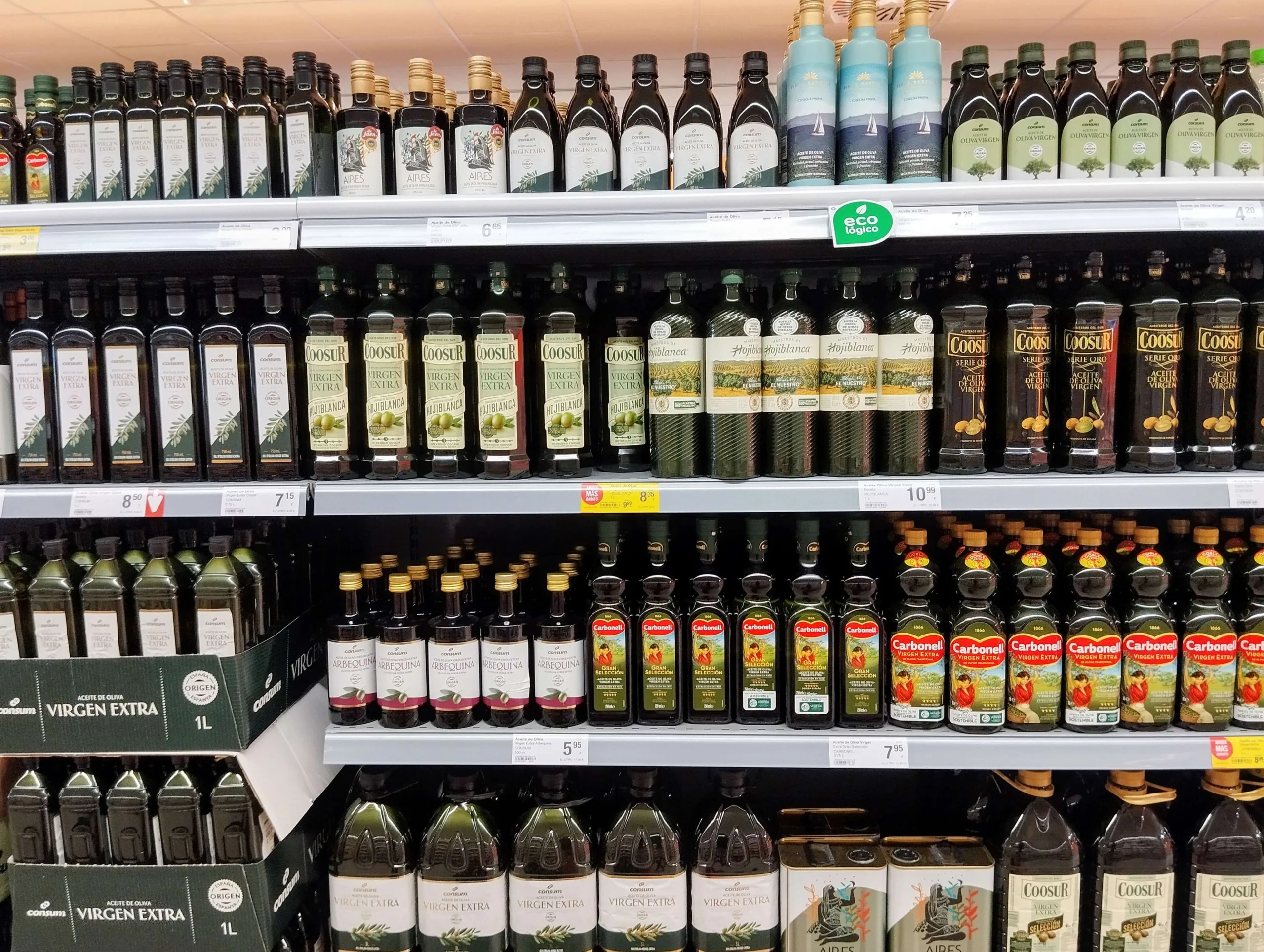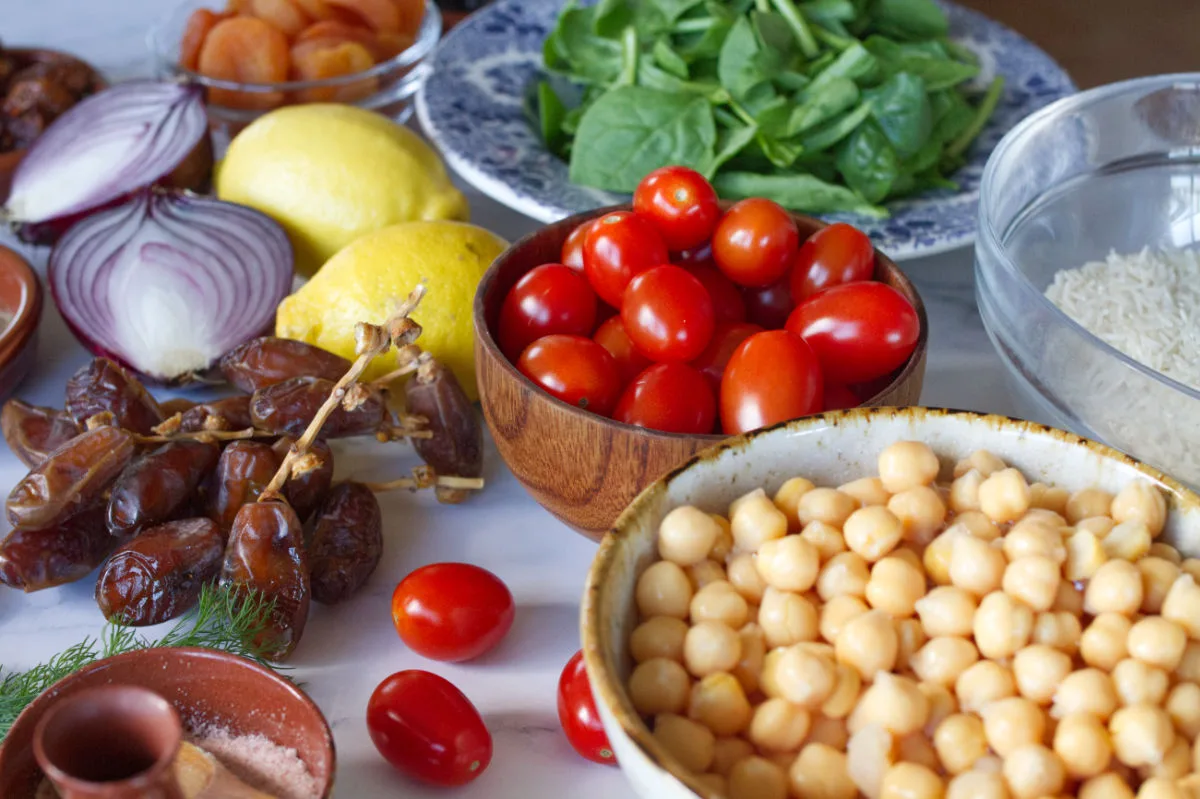In a world obsessed with quick fixes and fad diets, there’s one “diet” that stands the test of time when it comes to promoting gut health — the Mediterranean diet. Bursting with flavor, color, and a myriad of health benefits, this age-old way of eating has been linked to improving everything from heart health to weight management.
But what about your gut? Well, it turns out that the Mediterranean diet is like a tune-up for your digestive system, and here’s why.
Table of contents:
The Basics of the Mediterranean Diet
Before we delve into the gut-loving goodness, let’s recap what the Mediterranean diet is all about. At its core, this diet is inspired by the traditional eating habits of people in countries bordering the Mediterranean Sea, such as Greece, Italy, and Spain. It doesn’t have strict guidelines to follow, so don’t be put off if you’ve “failed” diets before (some are ridiculously hard to put into practice).
In contrast, the Mediterranean diet is a celebration of fresh, whole foods with an emphasis on heart-healthy fats, lean proteins, and an abundance of fruits and vegetables. Olive oil takes center stage, and you’ll find plenty of nuts, seeds, and legumes in the spotlight as well. You find plenty more info on our Mediterranean diet homepage.
Gut-Friendly Foods in the Mediterranean Diet
1. Fiber-Rich Fruits and Vegetables
One of the key reasons the Mediterranean diet is a gut superstar lies in its high fiber content. Fruits and vegetables, loaded with a variety of fibers, act as fuel for the beneficial bacteria in your gut. These bacteria, often referred to as your gut microbiota, play a crucial role in digestion, nutrient absorption, and overall gut health.
To make the most of this, aim to include a rainbow of fruits and vegetables in your diet. Berries, citrus fruits, leafy greens, tomatoes, and artichokes are particularly rich in fibers that support a healthy gut environment.
2. Olive Oil: Liquid Gold for Your Gut
Swap out the butter and embrace the liquid gold of the Mediterranean diet — olive oil. It contains polyphenols, which have been shown to support a diverse and thriving gut microbiota.
Plus, the monounsaturated fats in olive oil contribute to a healthy balance of bacteria in the gut. Olive oil keeps you healthy on so many levels too, and not just your gut. It can help prevent certain cancers and is great at supporting a healthy heart.
3. Lean Proteins: Fish and Legumes
Fish, especially those rich in omega-3 fatty acids like sardines and mackerel, are staples in the Mediterranean diet. These fatty acids promote a healthy gut environment because they have anti-inflammatory properties that benefit your gut by reducing inflammation and supporting the growth of beneficial bacteria.
If you’re not a fan of fish, then legumes — such as lentils, chickpeas, and black beans — are excellent plant-based sources of protein and fiber. They help nourish your gut bacteria and keep your digestive system humming along smoothly.
4. Yogurt and Fermented Foods
The Mediterranean diet encourages the consumption of yogurt and other fermented foods, the most common being Greek yogurt, kefir, and sauerkraut. These foods are packed with probiotics — live bacteria that provide a health boost to your gut microbiota. Probiotics help maintain a balance between good and bad bacteria, supporting your digestion.
Enjoy a bowl of Greek yogurt with honey and nuts, or use it to make a creamy Greek tzatziki dip, or incorporate fermented veggies into your meals for an extra probiotic punch.
How to Embrace the Mediterranean Diet for a Happier Gut
Now that we’ve uncovered why the Mediterranean diet helps your gut, the next step is incorporating these foods into your daily life. Here are some practical tips to help you get started:
1. Start with Small Changes
Transitioning to a new way of eating can be overwhelming, so take it one step at a time. Begin by swapping out processed snacks for a handful of nuts or fresh fruit. Try incorporating natural yogurt into your diet or another fermented food like kefir or sauerkraut. Then, gradually replace refined grains with whole grains like quinoa, bulgur, or whole wheat.
2. Explore Mediterranean Flavors
Experiment with common Mediterranean herbs and spices, such as basil, oregano, rosemary, and garlic. Herbs and spices have antimicrobial properties that can positively impact your gut microbiota.
Foods that are seasoned with spices and herbs also require less salt for flavoring.
3. Make Olive Oil Your Go-To Fat
Say goodbye to saturated fats and make olive oil the main fat in your kitchen. Use it as your primary cooking oil, drizzle it over salads, and use it in dips and even desserts. Everything in moderation though, so if you just have to use butter in your favorite recipe, go for it. Just try and make the transition to using olive oil as your predominant fat, particularly extra virgin olive oil.

4. Prioritize Fish Twice a Week
Try to include fatty fish in your diet at least twice a week. Grilled salmon, baked mackerel, tinned sardines in olive oil, or a simple tuna salad are delicious ways to meet your omega-3 fatty acid needs. If you’re not a fan of fish or perhaps it’s expensive where you live, consider fish oil supplements or plant-based proteins.
5. Embrace Plant-Based Proteins
You don’t have to be vegan or vegetarian to benefit from plant-based proteins. Try swapping meat for legumes in things like bolognese sauce or add chickpeas to your salads for an extra protein boost. You can even make a delicious vegan mince recipe, which will give you plenty of omega-3 and important nutrients.
The trick is to find something that you like. There are plenty of options so if you try something and it’s not for you, you don’t have to force yourself to like it. The Mediterranean diet has nearly endless possibilities.
6. Savor Your Meals Mindfully
In the hustle and bustle of modern life, it’s easy to wolf down meals without a second thought. Slow down and savor the flavors of your food. Eating mindfully not only enhances your overall dining experience but also allows your body to signal when it’s full, preventing overeating.
7. Stay Hydrated with Water and Herbal Teas
Hydration is a fundamental aspect of digestive health. Make water your staple drink throughout the day, and consider incorporating herbal teas like peppermint or chamomile. These teas not only hydrate but also have soothing properties for your digestive system.
If you’re not sure how much water you should drink each day, you’re not alone. The standard guidelines provided are great to a certain point but there are so many factors that impact your personal daily water target. The two biggest are weight and exercise.
The University of Missouri has equations to help you calculate how much water you need plus other tips and factors surrounding water consumption.
Eat Your Way to a Happier Gut
Whether you are one of the many people who experience digestive issues or just want to look after your gut as part of your overall well-being, why not take a page from the Mediterranean playbook? From fiber-rich fruits and vegetables to heart-healthy fats and probiotic-rich yogurt, the Mediterranean diet is a delicious journey to a happier, healthier gut.


Leave a Reply